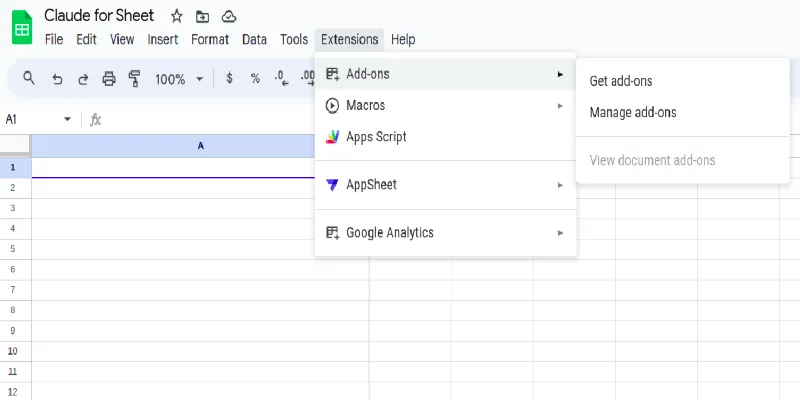The analytics engineering leader, DBT Labs, has unveiled dbt Copilot, an AI- powered assistant designed to revolutionize the way data practitioners operate. Integrated with dbt Cloud, dbt Copilot streamlines repetitive tasks, enhances collaboration, and accelerates the Analytics Development Lifecycle (ADLC) from Coalesce 2024 to its current availability.
With dbt Copilot, developers can focus on high-value activities instead of mundane tasks. This integration of generative AI capabilities bolsters data quality control and governance. In this article, we explore the key features, enterprise benefits, workforce impacts, and operational implications of dbt Copilot.
Transforming Analytics with AI
 As
organizational data environments become more complex, teams are pressured to
generate high-quality insights faster than ever. Manual tasks, such as
autogenerated documentation, test execution, and model development through
traditional methods, can hinder productivity and introduce errors. DBT Labs
addresses these challenges by launching dbt Copilot, which leverages AI to
optimize analytical workflows.
As
organizational data environments become more complex, teams are pressured to
generate high-quality insights faster than ever. Manual tasks, such as
autogenerated documentation, test execution, and model development through
traditional methods, can hinder productivity and introduce errors. DBT Labs
addresses these challenges by launching dbt Copilot, which leverages AI to
optimize analytical workflows.
By integrating dbt Copilot with dbt Cloud, DBT Labs aims to simplify data preparation processes and improve collaboration between technical and non- technical staff. The integration enhances connectivity between cloud data platforms and analytics tools, serving as a data control plane.
Key Features of dbt Copilot
1. Auto-Generated Documentation
- Generates automated documentation for dataset models and metrics using generative AI technology, reducing the time required for documentation creation.
- Utilizes metadata and lineage analysis to provide comprehensive descriptions of column properties, relationship links, and dependency connections.
- Reduces human labor while maintaining standardized best practices in documentation.
2. Semantic Modeling Automation
- Facilitates the establishment of core business metrics as organization-wide standards, overcoming the difficulties of manual data model design.
- Generates preliminary semantic model drafts by analyzing dataset information and identifying essential metrics.
- Accelerates the adoption of the dbt Semantic Layer, allowing developers to focus on refining business logic.
3. Automated Data Testing
- Streamlines data testing, which typically requires extensive manual effort and often yields poor results.
- Creates baseline tests to assess primary keys, foreign keys, and dataset profiles in real-time operation.
- Enhances data quality by providing automatic test frameworks for complex data calculation rules and recursive case statement methods.
4. Natural Language Querying
- Processes data through a chat interface using natural language processing.
- Allows stakeholders to obtain defined metric responses through queries like “Last quarter sales trends.” The system converts questions into SQL commands and delivers immediate results.
The tool democratizes data analytics access for personnel lacking technical expertise through a direct data interaction interface.
5. Cross-Platform Integration
dbt Copilot supports major cloud systems, including Snowflake, Databricks, Google BigQuery, and Apache Iceberg, ensuring seamless operation across different enterprise environments while maintaining governance standards.
How dbt Copilot Enhances Developer Efficiency
1. Faster Analytics Development Lifecycle (ADLC)
- Automates recurring tasks throughout every phase of the ADLC.
- Generates code snippets for transformation-based processes and testing operations directly during development.
- Automatically prepares comprehensive metadata documentation.
- Builds extensive test networks with minimal manual intervention.
- Allows developers to focus on strategic tasks, enhancing query optimizations and scalable architecture design.
2. Bridging Technical Gaps
- Enables users without SQL expertise to perform analytics tasks through business queries, fostering collaboration between programmers and decision-makers.
3. Ensuring Data Quality at Scale
- Automates dataset testing to maintain high data quality standards as organizations manage expanding datasets and volumes.
Applications Across Industries
 dbt Copilot’s
applicability spans multiple industries, enhancing its value across various
sectors.
dbt Copilot’s
applicability spans multiple industries, enhancing its value across various
sectors.
Healthcare
- Hospitals use auto-generated semantic models to monitor patient outcomes and simplify reporting procedures, ensuring compliance with HIPAA and other regulations.
Finance
- Banks achieve higher accuracy in financial risk assessments and fraud detection models through automated testing features.
Retail
- Retailers utilize natural language querying to track customer behavior patterns and optimize inventory management.
Technology
- Tech companies accelerate their analytics workflows by automating documentation and testing with dbt Copilot.
Customer Success Stories
Several leading organizations have reported significant productivity gains with dbt Copilot.
- An international e-commerce firm reduced documentation hours by 70% by allowing the system to generate metadata descriptions for product datasets.
- A fintech startup achieved 50% better test coverage and detected critical errors early in pipeline transformations.
- Hospital teams accessed patient metrics directly through natural language requests, reducing reliance on technical analysts.
Future Developments
DBT Labs plans to enhance dbt Copilot with additional features to expand its functionality.
- API capabilities to generate complex SQL statements from user-initiated commands.
- Advanced Unit Testing: Creation of mock datasets for edge-case validation.
- Enhanced Collaboration Tools: Introduction of low-code visual editors for multi-platform environments.
The company aims to position dbt Cloud as a comprehensive solution for enterprise analytic engineering.
Challenges Addressed by dbt Copilot
Data teams faced numerous challenges before the introduction of dbt Copilot.
- Manual documentation and testing led to project delays.
- Analysts were the primary link for non-technical stakeholders to access analytic insights.
- Limited testing coverage increased risks of data quality issues in production environments.
dbt Copilot offers solutions that enable organizations to build reliable analytics systems with greater efficiency and reduced time-to-market.
Conclusion
DBT Labs’ launch of dbt Copilot signifies a breakthrough in analytics engineering, leveraging AI across development stages. With features like automated documentation, testing functions, and natural language data interaction, dbt Copilot enhances productivity while maintaining high standards. Tools like dbt Copilot will drive AI adoption, fostering faster decision-making and improved teamwork.
 zfn9
zfn9























